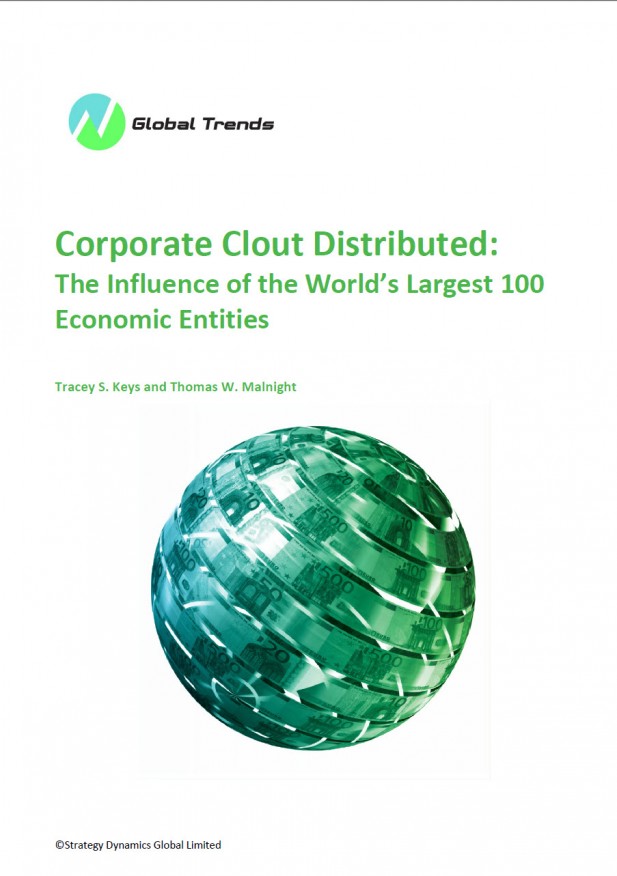
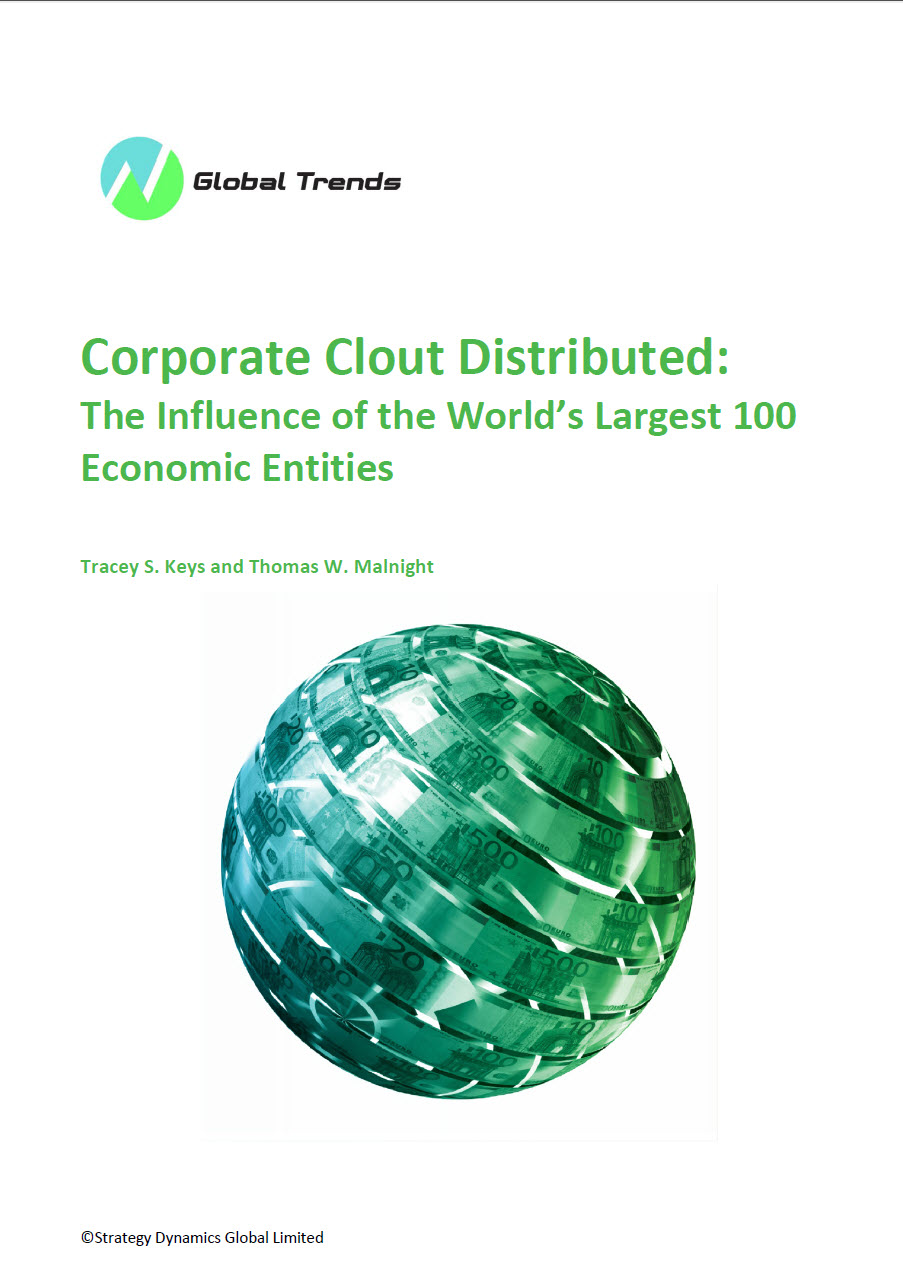
SPECIAL REPORT: Corporate Clout Distributed 2012: The Influence of the World’s Largest 100 Economic Entities
Of the world’s 100 largest economic entities in 2010, 42 (42%) are corporations. The largest, as in 2009 was Wal-Mart, whose 2010 revenues exceeded the GDPs of 171 countries making it the 25th largest economic entity in the world. Combined the revenues of the largest 5 energy companies were the equivalent of 2.5% of global GDP in 2010. The sheer size and influence of corporate entities means there is a need for them to take a more active role in addressing critical global challenges, individually and collectively. How are the shifts in corporate clout playing out? What does it mean for you?
-
Of the world’s 100 largest economic entities in 2010, 42 (42%) are corporations. The largest, as in 2009 was Wal-Mart, whose 2010 revenues exceeded the GDPs of 171 countries making it the 25th largest economic entity in the world. The next group in terms of size is energy majors with the combined revenues of the five largest players (Royal Dutch Shell, ExxonMobil, BP, Sinopec and China National Petroleum) equivalent to 2.5% of global GDP in 2010.
While the proportion of corporations amongst the world’s largest 100 economic entities has fallen over the last decade one big trend is the movement from West to East as global challengers from rapidly developing economies (RDEs) continue their rise into the global halls of economic power – along with their countries. Among the Top 100 economic entities there are now 6 RDE companies versus just 1 in 2000, and looking at the Top 150 the number of RDE companies tripled between 2000 and 2010 to 15.
The global recession continues to play out: While the energy majors have seen the greatest revenue growth, automotive companies are also showing the benefits of dramatic restructuring during the financial crisis. The largest financial services companies also make the Top 100 list, although rankings were down, impacted by the Eurozone crisis as well as broader challenges in the financial services industry.
However, financial power brokers are clearly in control of the world’s assets and sources of value creation. Research from the Swiss Federal Institute of Technology highlights the structure of the control network of transnational corporations (TNCs) – essentially who owns whom, and therefore has the potential to exert influence over value created. The bottom line: 147 TNCs control almost 40% of the total economic value created by TNCs in the world. Almost three-quarters of these 147 companies are financial intermediaries.
A growing factor to add to the mix is the rising clout of the city. Where the current and future titans of the corporate world are headquartered and operate will make a difference. Currently half of the 42 companies in our Top 100 are located in urban growth hotspots – the question for those who are not is how will this impact their future growth prospects?
Overall it is a multi-hub world, with many distributed players cultivating – and in some cases losing – their economic clout. Understanding how this picture impacts your markets, customers, consumers, employees and value creation networks is critical to future success. It is also critical to the future success of economies and societies globally. The sheer size and influence of corporate entities means there is a need for them to take a more active role in addressing critical global challenges, from food to water to energy security.
Our view looking ahead is that leaders of the biggest corporations around the world need to rise to the challenge of moving “shared value” beyond lip service and individual initiative. Shared value challenges organizations and their leaders to focus on creating value for companies and societies simultaneously – because it is the interests of both sides to do so. Given mounting worldwide challenges the need for such action is clearly rising, but it will take effort and courage. There is need to move beyond individual corporate action, even with all the relevant stakeholders involved. Collective, pre-competitive corporate action is needed. It’s time to rethink how we channel and use corporate clout to best advantage of both business and society.
Perhaps the biggest challenge of all for corporates will be helping consumers and customers to rethink consumption. While consumers are becoming more aware and active in demanding sustainable products and services, actually making the required shifts in behaviors is much harder.
Is your business ready to tell your customers and consumers to use less of your products and services? Are you ready to cooperate with your competitors to pre-empt and find solutions to future global issues?
Login or register to download the full Special Report at no cost.
-
Be the first to review “SPECIAL REPORT: Corporate Clout Distributed 2012: The Influence of the World's Largest 100 Economic Entities”
You must be logged in to post a comment.


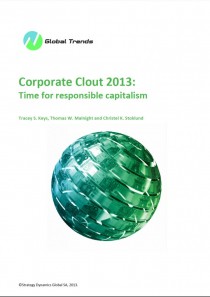
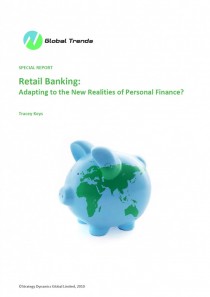
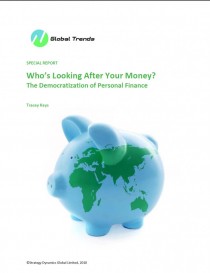
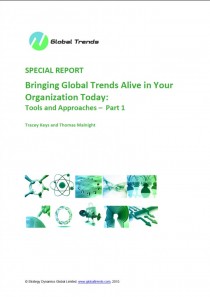

There are no reviews yet, would you like to submit yours?